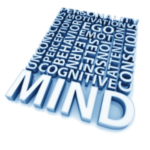Published on October 29, 2014 by Shahram Heshmat, Ph.D. in Science of Choice Psychoanalysis is considered as a theory, a treatment, and a way of thinking about the human motivation. A psychoanalytic perspective includes conscious, and repressed unconscious motives and desires. Psychoanalysis is traditionally conceived as an opportunity for a motivated person to reflect deeply about everything he or she is feeling and thinking without editing or censoring. Freud developed the first systematic approach of how unconscious mental life exerts its influence on our view of the world. The so-called structural theory organizes the functions of the mind into three conflicting parts: 1) the ego (governed by the “reality principle”); 2) the superego (the conscience, a sometimes too rigid commitment to the rules of society); and 3) the id (the desire for pleasure, sooner rather than later). The id contains the reservoir of energy, and is commonly referred to as the libido (sexual energy and aggressiveness). It seeks only immediate gratification and is totally “selfish.” operating according to the so-called “animal spirits.” Contemporary neuroscientists might locate the id in the amygdala, the ancient part of the brain involved in primitive emotional functioning. The concept of the ego (i.e., one’s sense of “I”) is relatively compatible with contemporary knowledge of the prefrontal cortex (self-control). The ego responds to id and superego impulses by modifying them as a way of managing conflict and danger. The superego emerges through the internalization of social values and norms. For Freud, the goal of psychoanalysis was to strengthen the ego, and to give it more control over the id and more independence from the superego. He believed that most mental disorders (e.g., anxiety) were due to the effect of unrestrained feelings. Increased awareness through psychoanalysis can help the individual to become less self-punitive and be able to tolerate their emotional experiences. Psychological growth requires self-acceptance, which is a state of mind that marks the end of the life-consuming struggle to transform oneself (and others) into the person one wishes one were (or wishes they were) . Becoming aware of the unconscious motives helps the individual to increase the ability to manage and integrate unconscious wishes, and ultimately to self-acceptance. Freud argued that whenever desires (wishes) from the id threaten to emerge in thought or action, anxiety is generated. The anxiety acts as a signal, causing the ego mobilize repression, along with a broad range of other defenses (withdrawal, denial, projection), in order to block or disguise the anxiety-provoking wish. The intensity of anxiety differs according to the gap between external demands (dangerous situations) and the person’s self-protective resources to handle them. Inability to deal with external events (traumas) could lead to feelings of helplessness and powerlessness. Lacking the capability to cope with negative states, patients will erect powerful, sometimes intransigent, defenses in a desperate effort to avoid feeling them. The person using a defense is generally trying to accomplish the management of anxiety and maintenance of self-esteem. For instance, alcoholics insist they have no drinking problem. Keeping the unacceptable feelings out of awareness result in the development of a “false self.” The price for this protection is inability to develop resilience. Addiction is described as a defensive strategy to avoid feeling of helplessness or powerlessness. Drug abuse is a futile attempt to compensate for inner emptiness without success. The addict tries to compensate via addictive behavior for painful subjective states of low self-esteem, doubts and anxiety. The use of drugs supplies a feeling of acceptance and feeling of temporary self-confident. Addict substitutes an imaginary world, where he is in complete control, for the real world, where he feels useless and out of control. Repeated use of drugs to gain relief becomes a way of life. Relief is momentary, but in the long-term drug use becomes an end in itself. The addiction problem prevents the user from understanding about her distress, as well as the development of emotional capacity to self-soothe. The psychoanalysis view suggests addiction is basically a disorder of self-regulation. For instance, individuals with histories of exposure to adverse childhood environments (e.g., physical and sexual abuse) tend to have diminished capacity to regulate negative emotions and cope effectively with stress. These individuals may be self-medicating anxiety and mood disorders. It is instructive to note that many individuals experiment with drugs but few become addicted. The success of therapy and the lasting change require the patients come into contact with previously inaccessible aspects of their inner feelings. Helping patients increase the ability for engaging in self-reflection, and identifying alternative ways to manage difficult emotions are part of the psychodynamic approach to addiction treatment.
Psychoanalysis is considered as a theory, a treatment, and a way of thinking about the human motivation. A psychoanalytic perspective includes conscious, and repressed unconscious motives and desires. Psychoanalysis is traditionally conceived as an opportunity for a motivated person to reflect deeply about everything he or she is feeling and thinking without editing or censoring. Freud developed the first systematic approach of how unconscious mental life exerts its influence on our view of the world. The so-called structural theory organizes the functions of the mind into three conflicting parts: 1) the ego (governed by the “reality principle”); 2) the superego (the conscience, a sometimes too rigid commitment to the rules of society); and 3) the id (the desire for pleasure, sooner rather than later). The id contains the reservoir of energy, and is commonly referred to as the libido (sexual energy and aggressiveness). It seeks only immediate gratification and is totally “selfish.” operating according to the so-called “animal spirits.” Contemporary neuroscientists might locate the id in the amygdala, the ancient part of the brain involved in primitive emotional functioning. The concept of the ego (i.e., one’s sense of “I”) is relatively compatible with contemporary knowledge of the prefrontal cortex (self-control). The ego responds to id and superego impulses by modifying them as a way of managing conflict and danger. The superego emerges through the internalization of social values and norms. For Freud, the goal of psychoanalysis was to strengthen the ego, and to give it more control over the id and more independence from the superego. He believed that most mental disorders (e.g., anxiety) were due to the effect of unrestrained feelings. Increased awareness through psychoanalysis can help the individual to become less self-punitive and be able to tolerate their emotional experiences. Psychological growth requires self-acceptance, which is a state of mind that marks the end of the life-consuming struggle to transform oneself (and others) into the person one wishes one were (or wishes they were) . Becoming aware of the unconscious motives helps the individual to increase the ability to manage and integrate unconscious wishes, and ultimately to self-acceptance. Freud argued that whenever desires (wishes) from the id threaten to emerge in thought or action, anxiety is generated. The anxiety acts as a signal, causing the ego mobilize repression, along with a broad range of other defenses (withdrawal, denial, projection), in order to block or disguise the anxiety-provoking wish. The intensity of anxiety differs according to the gap between external demands (dangerous situations) and the person’s self-protective resources to handle them. Inability to deal with external events (traumas) could lead to feelings of helplessness and powerlessness. Lacking the capability to cope with negative states, patients will erect powerful, sometimes intransigent, defenses in a desperate effort to avoid feeling them. The person using a defense is generally trying to accomplish the management of anxiety and maintenance of self-esteem. For instance, alcoholics insist they have no drinking problem. Keeping the unacceptable feelings out of awareness result in the development of a “false self.” The price for this protection is inability to develop resilience. Addiction is described as a defensive strategy to avoid feeling of helplessness or powerlessness. Drug abuse is a futile attempt to compensate for inner emptiness without success. The addict tries to compensate via addictive behavior for painful subjective states of low self-esteem, doubts and anxiety. The use of drugs supplies a feeling of acceptance and feeling of temporary self-confident. Addict substitutes an imaginary world, where he is in complete control, for the real world, where he feels useless and out of control. Repeated use of drugs to gain relief becomes a way of life. Relief is momentary, but in the long-term drug use becomes an end in itself. The addiction problem prevents the user from understanding about her distress, as well as the development of emotional capacity to self-soothe. The psychoanalysis view suggests addiction is basically a disorder of self-regulation. For instance, individuals with histories of exposure to adverse childhood environments (e.g., physical and sexual abuse) tend to have diminished capacity to regulate negative emotions and cope effectively with stress. These individuals may be self-medicating anxiety and mood disorders. It is instructive to note that many individuals experiment with drugs but few become addicted. The success of therapy and the lasting change require the patients come into contact with previously inaccessible aspects of their inner feelings. Helping patients increase the ability for engaging in self-reflection, and identifying alternative ways to manage difficult emotions are part of the psychodynamic approach to addiction treatment.
A Psychodynamic Way of Understanding Addiction




